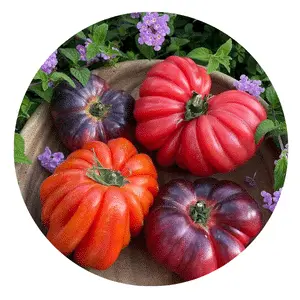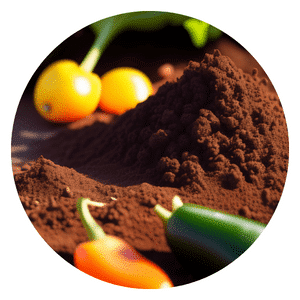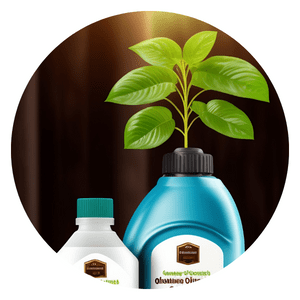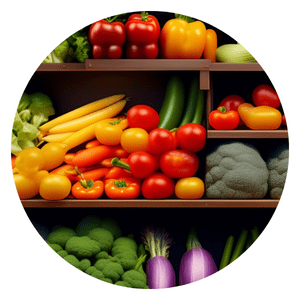How often should I fertilize tomato plants?
Tomatoes, with their vibrant colors and juicy flavor, are a staple in many home gardens. As gardeners, we strive to cultivate robust tomato plants that yield bountiful harvests.
One crucial aspect of growing tomatoes successfully is providing them with the necessary nutrients.
Fertilizing tomato plants plays a vital role in ensuring their health and productivity. However, the question that often arises is: how often should I fertilize my tomato plants?
In this article, we will delve into this query and explore the best practices for fertilizing these beloved fruits to help you achieve impressive yields year after year.
Tomato Fertilizer Menu
Planting Time
When it comes to planting tomatoes, it’s crucial to think ahead and prepare the soil before transplanting your seedlings.
One key step you shouldn’t overlook is mixing a balanced organic fertilizer into the soil.
By doing so, you’re not only providing essential nutrients for early growth, but also ensuring that your plants have a strong foundation for healthy development.
While many gardeners may be eager to get their tomato plants in the ground as soon as possible, taking the time to incorporate organic fertilizer will pay off in the long run. This practice helps replenish vital nutrients that may have been depleted over time or lost during previous plantings.
As a result, your tomatoes will have a better chance of thriving and producing an abundant harvest.
Choose an organic fertilizer blend specifically formulated for vegetable gardens, making sure it contains essential macronutrients like nitrogen, phosphorus, and potassium. These elements play a crucial role in supporting plant growth and fruit development.
Additionally, consider incorporating some bone meal or fish emulsion into the mix – these amendments can provide extra phosphorus and help encourage robust root systems.
By starting off on the right foot with proper fertilization at planting time, you’re setting yourself up for success when it comes to growing healthy tomato plants.
Don’t underestimate the impact of this small yet crucial step – because once those seedlings are transplanted into nutrient-rich soil, there’s no stopping them from reaching their full potential!
2-3 Weeks After Transplanting
During the critical two to three week period after transplanting, tomato plants are busy establishing their root systems in their new environment.
To give them an extra nutrient boost and support their growth, consider applying a diluted liquid organic fertilizer. This will provide the necessary nutrients without overwhelming the delicate roots.
Organic fertilizers are preferable as they contain natural ingredients that promote healthy soil and improve overall plant health.
Applying a diluted liquid organic fertilizer at this stage helps provide your tomato plants with essential nutrients like nitrogen, phosphorus, and potassium. These nutrients contribute to vigorous root development, leaf growth, and flower production.
By providing these nutrients in a balanced ratio, you are ensuring that your tomato plants have everything they need for solid foundation establishment.
However, it is important to be cautious when applying fertilizer during this period.
Over-fertilization can lead to excessive leaf growth at the cost of fruit production or even burn the plant’s delicate young roots.
Diluting the liquid fertilizer according to package instructions is key for safeguarding against these issues.
Additionally, always remember to water your plants well before applying any type of fertilizer, as moisture helps distribute nutrients effectively throughout their system.
Taking care of your newly transplanted tomato plants is crucial for their long-term success.
By offering them a nutrient boost with a diluted organic liquid fertilizer during this two to three week window after transplanting, you are setting them up for strong root development and vigorous growth in the months ahead
During Flowering and Fruit Set
During the flowering and fruit set stage of tomato plants, it is crucial to provide them with the necessary nutrients to support healthy fruit development.
Fertilizing every 2-3 weeks during this stage will ensure that your plants have a continuous supply of essential elements. These nutrients play a vital role in flower production, pollination, and fruit formation.
One important nutrient to focus on during this stage is phosphorus. Phosphorus aids in root development, energy transfer, and fruit maturity.
To provide your tomato plants with enough phosphorus, choose a fertilizer formulation with a higher middle number (N-P-K ratio). This indicates a higher concentration of phosphorous relative to nitrogen (first number) and potassium (last number).
In addition to phosphorus, other nutrients like calcium and magnesium are also crucial for proper flower and fruit development.
Calcium helps prevent blossom end rot—a common condition where the bottom part of developing fruits turns black and mushy—while magnesium promotes chlorophyll production for healthier leaves.
Therefore, using balanced fertilizers or adding organic matter rich in these minerals can greatly benefit your tomato plants’ overall growth during this critical phase.
In the realm of gardens, tomatoes bloom bright, Their vibrant hues filling our hearts with delight. But when it comes to feeding this cherished fruit, Balance is key, don't let it bear the fruitless mute. Once a month, let nutrients gently embrace, The roots that anchor in vigor and grace. Nourish them with care, not too much but just right, For bountiful harvests that bring pure delight.
Chappy The Gardener
Use Slow-Release Fertilizers
Using slow-release organic fertilizers can be a game-changer when it comes to caring for your tomato plants.
While conventional fertilizers provide a quick burst of nutrients, they often leave plants hungry shortly after application.
Slow-release fertilizers, on the other hand, release nutrients gradually over an extended period, ensuring that your tomato plants receive a consistent and steady supply of nourishment.
Not only do slow-release fertilizers provide long-lasting benefits, but they also reduce the need for frequent applications. This means less time spent monitoring your plants’ nutrient levels and fewer trips to the store to restock on fertilizer.
By using slow-release organic fertilizers, you can save both time and money while still providing your tomato plants with the nutrients they need to thrive.
Additionally, slow-release fertilizers promote healthier soil by allowing beneficial microorganisms to break down the nutrients at their own pace. This natural process improves soil fertility in the long run and encourages strong root development in tomato plants.
So not only are you providing vital nutrition to your tomatoes, but you’re also cultivating a healthy ecosystem beneath the surface that will benefit all future plantings as well
Monitor Soil Nutrients
Regularly monitoring the soil nutrients is essential for optimal tomato plant growth.
Conducting soil tests helps determine whether nutrient levels are sufficient or if deficiencies exist.
By understanding the specific nutrient needs of your plants, you can avoid over- or under-fertilizing, improving plant health and yield.
But what exactly do these soil tests measure? Soil tests typically analyze the levels of key macronutrients like nitrogen, phosphorus, and potassium (NPK), as well as secondary nutrients like calcium, magnesium, and sulfur.
If these nutrients are present in adequate amounts, it may not be necessary to fertilize as frequently.
However, if deficiencies are detected in certain elements such as nitrogen or phosphorus, adjusting your fertilizer application accordingly becomes crucial.
By adopting a targeted approach to fertilization based on soil test results instead of blindly applying general-purpose fertilizers at set intervals, gardeners can achieve more balanced nutrition for their tomato plants. This method ensures that the specific needs of your tomatoes are met while avoiding potential nutrient imbalances that can lead to stunted growth or poor fruit quality.
Ultimately, regular soil testing empowers gardeners with knowledge about their unique soil composition and allows them to tailor their fertilization plans accordingly for healthier and more productive tomato plants.
Avoid Overfeeding
Overfertilization can be a common mistake when it comes to growing tomato plants, as many gardeners believe that more nutrients will automatically result in larger and healthier tomatoes.
However, this is not always the case. While tomatoes do require nutrients to grow and thrive, excessive fertilization can actually hinder fruit production.
Too much nitrogen, for example, can lead to an abundance of vegetative growth at the expense of fruit development.
To avoid overfeeding your tomato plants, it is important to follow the recommended dosage on the fertilizer packaging. These guidelines are designed to provide your plants with the necessary nutrients without overwhelming them.
Keep in mind that every plant’s nutrient needs may vary depending on factors such as soil quality and climate conditions.
By paying close attention to these recommendations and regularly monitoring your plants’ growth and development, you will be better equipped to ensure a balanced nutrient intake for optimal fruit production.
Remember that providing your tomato plants with proper nutrition involves more than just fertilizing them consistently. It is equally important to maintain good watering habits and ensure adequate sunlight exposure for healthy growth.
By striking a balance between these essential elements, you can encourage robust plant development without sacrificing the ultimate goal – a bountiful harvest of juicy tomatoes filled with flavor
Watering and Fertilizing
When it comes to growing healthy tomato plants, watering and fertilizing go hand in hand.
One common mistake many gardeners make is applying fertilizer without properly watering their plants beforehand. This can lead to fertilizer burn, a condition where the chemicals in the fertilizer cause damage to the plant’s roots and leaves.
By thoroughly watering your tomato plants before applying fertilizer, you can help prevent this issue and ensure that the nutrients are absorbed effectively by the roots.
Watering your tomato plants before fertilizing also helps to create a moist environment around the root zone, allowing for better nutrient uptake.
When watered well, the soil becomes more receptive to receiving and distributing nutrients evenly throughout its layers. This means that when you do apply fertilizer, it has a better chance of being thoroughly absorbed by the roots rather than just sitting on top of dry soil.
In addition to preventing fertilizer burn and enhancing nutrient absorption, watering before fertilizing also allows you to gauge whether your plants actually need more water or not.
Sometimes we may think our tomato plants are thirsty when in reality they are adequately hydrated.
By giving them a good drink before adding any additional moisture through fertilizers, you can avoid over-watering and potentially damaging your plants in the long run.
Overall, by taking the time to water your tomato plants thoroughly before applying fertilizer, you are setting them up for success.
Not only does this practice prevent issues like fertilizer burn but it also ensures that nutrients are effectively absorbed by the roots for maximum growth and productivity.
Consider Compost
Incorporating compost into the soil before planting can be a game-changer for your tomato plants.
Compost acts as a slow-release source of nutrients, providing a steady supply throughout the growing season. This means that you won’t have to constantly fertilize your plants with synthetic or chemical-based products.
Not only does compost nourish your tomato plants naturally, but it also improves soil quality and structure.
The organic matter in compost helps retain moisture and promotes beneficial microbial activity in the soil. These microorganisms break down organic matter, releasing nutrients that are then readily available for uptake by plant roots.
By using compost, you not only provide an essential source of nutrition for your tomatoes but also enrich the overall health of your garden ecosystem.
Additionally, incorporating compost into the soil acts as a natural buffer against nutrient leaching.
Unlike traditional soluble fertilizers that can be easily washed away by heavy rain or overwatering, compost gradually releases its nutrients over time without causing excess runoff or pollution. This significantly reduces environmental impact and helps create a more sustainable approach to gardening.
Therefore, if you want to nourish your tomato plants without the constant need for synthetic fertilizers or risking environmental damage, consider incorporating compost into your garden bed before planting. Your tomatoes will thank you with robust growth and bountiful harvests
Monitor Plant Health
Monitoring the health of your tomato plants is crucial to ensure they receive the necessary nutrients for optimal growth and yield.
One of the tell-tale signs of nutrient deficiencies is yellowing leaves. When you notice a yellow discoloration on your plant’s leaves, it may indicate a lack of nitrogen, iron, or magnesium.
By regularly observing your tomato plants and identifying any visual changes, you can promptly address these deficiencies by adjusting your fertilization schedule and providing the appropriate nutrients.
Stunted growth is another indicator that your tomato plants may be suffering from nutrient deficiencies. If you notice that your plants are not growing as vigorously as they should be, it could be a sign that they lack essential macronutrients like phosphorus or potassium. These nutrients play a crucial role in promoting strong root development, flower formation, and overall plant growth.
Adjusting the amount and timing of fertilization can help correct these imbalances and support healthy plant growth.
By monitoring your tomato plants closely for signs of nutrient deficiencies such as yellowing leaves or stunted growth, you can proactively address these issues through timely adjustments to your fertilization schedule.
Regular observation allows you to identify problems early on before they become severe and hinder the overall productivity of your tomato plants.
Remember that each crop has specific nutritional requirements, so understanding the needs of tomato plants will help ensure their success throughout each growing season.
In conclusion, the frequency of fertilizing tomato plants depends on several factors such as soil quality, weather conditions, and the specific fertilizer used.
Generally, it is recommended to start fertilizing when the plants have developed their first set of true leaves and continue every two to three weeks throughout the growing season.
However, it is important to monitor the plants closely and adjust the fertilization schedule accordingly.
Over-fertilizing can lead to excessive leaf growth at the expense of fruit production, while under-fertilizing may result in nutrient deficiencies and stunted growth.
To ensure healthy and productive tomato plants, it is crucial to strike a balance by providing adequate nutrients without overdoing it.
Click To Grow
Helps Us Grow – Share If You Like















